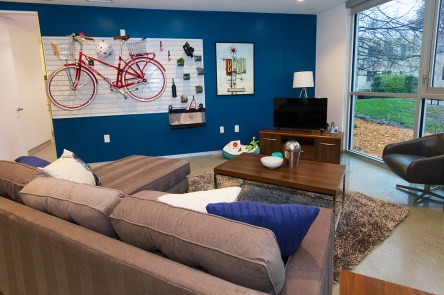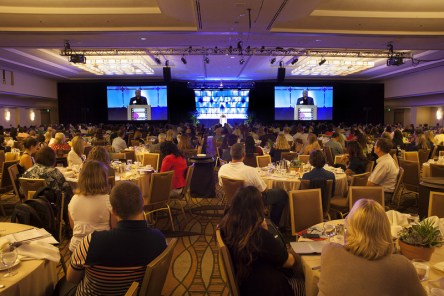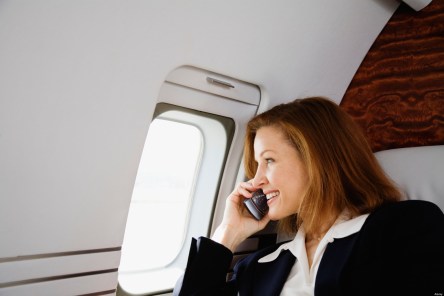Travel Leaders Group, the largest traditional travel agency in North America, released the 2017 Business Travel Trends survey. More than 540 agents participated in the survey, each with a portfolio composed of at least 50 percent business travel clients. The survey highlights industry trends as well as business travelers’ leading concerns. The business travel sector is projected to remain strong with 86% of agents expecting bookings to remain “as high or higher” than the same time last year. With potential growth in mind, industry professionals search for ways to improve the traveler experience. Top Concerns Each year, agents reported the top travel three concerns for their clients. The chart below reflects changes from year to year. While agents can do very little to ease difficulties within the airlines and TSA, they have committed to tackling the problems within their reach. Agents reported that they are most able to address or mitigate the following concerns for corporate travelers: Delayed flights 48.6% Making sure someone has their back 39.2% Earning frequent flyer/loyalty points 32.3% Limited airline seat availability 28.7% Travel costs 25.1% Wish Lists Skift, the nation’s largest industry intelligence platform, created the Supertraveler’s Wish List this year. Beyond the woes of airlines and agents, this list hones in on what business travelers seek on a personal level. The most sought-after features include better apps for hotels and improved retail in and around accommodations. Those are great additions for short term stays. But for travelers on assignment for several weeks or months, more is needed to help them feel comfortable. Corporate housing provides a more permanent feel than hotels—but they rarely get it right. Beyond pots and pans in the kitchen, corporate housing fails to address personal needs. Yardi has created a travelers’ wish list to...
Corporate Housing
Innovation for Road Warriors
Corporate travel has its perks. Thrilling locales, new experiences, and passport stamps are just a few takeaways from life on the road. Yet for traveling professionals with longer assignments, housing can be the least exciting part of the job. One company aims to improve corporate housing one unit at a time. Seattle-based Synergy Global Housing specializes in a “left of center” approach to employee accommodations. The company garners feedback from real traveling professionals in order to create temporary housing that feels like home—maybe even a bit better. A new Synergy property in Paulo Alto combines several of the latest concepts from the company’s idea incubator: Transport Made Easy Synergy paired with PUBLIC boutique bike manufacturer in San Francisco to create the Gear Wall. Amongst custom storage compartments and living plants hangs a shiny red bike. It entices residents to take it out for a spin. “It is our hope that these bikes also encourage guests to go outside of their apartment communities and see more of the world beyond their window view,” states the Synergy blog. The bicycle fills multiple voids, allowing users to gain quick access to the workplace and local businesses while fitting in a quick workout. The slower mode of travel can help residents learn more about the neighborhood and improve integration. Unique to You Rather than a one-size-fits-all design scheme, Synergy Palo Alto units come with a variety of aesthetics from which to choose. Themes include, but are not limited to, vintage, contemporary, sporty, and elegant. Residents can choose the unit style that most closely appeals to their lifestyle. The curated designs elevate housing standards beyond cookie-cutter hotels, helping travelers feel comfortable in their new space. Family First Time away from loved ones is often cited as one of the...
Conference Pro Tips
Best attendee practices
Conferences have become a booming business. Every year 1.8 million trade shows, conventions, expos, and other related meetings take place in the U.S. alone. A recent study observed the economic significance of meetings to the U.S. economy and the figures are staggering: 1.7 million jobs, $262 billion in spending, $60 billion in contribution to GDP, $60 billion in labor revenue, $14.3 billion in federal tax revenue, and $11.3 billion on state and local tax revenue. As we welcome our guests to the Yardi Advanced Solutions Conference, beginning next week in Washington, D.C. it’s worth asking: As an attendee, are you getting the most out of the conference experience? Before booking, make sure that you know why you’re attending and think strategically about how you’ll maximize the experience. The most common reasons are networking, finding leads, learning, and building your brand. The next thing to be considered is the administrative part. The sooner you book, the less you pay for plane tickets and hotel room, and if you start really early, chances are that you will find accommodation at the event hotel or within walking distance, thus avoiding hidden travel costs and inconveniences. You might even want to get there a day early, annulling jet lag and giving you time to explore. Before you leave for the trip, join the event’s social network and/or email list. Stock up on business cards and plan how to organize the ones you will collect. Know what season to expect and dress and pack accordingly. Comfortable shoes are a must, as are the portable battery packs for your mobile phone and chargers for all your devices. A personal Wi-Fi hotspot is priceless in a location where the devices outnumber the attendees. Make sure you stay hydrated, watch what you...
Travel 2014
The good, the bad, the horrid
This year, business travelers can expect to see a variety of changes between point A and point B. Do you want to start with the good news or the bad news? Bad news makes good news even sweeter, so let’s start there. Many airlines started off the New Year by jacking up existing fees. Spirit Airlines, United Airlines, Delta and US Airways have raised the price on checked luggage. Some changes depend on the quantity of checked bags, others on the size. None have amended their promise to have your checked bags arriving in a timely and unaltered manner. Now for the best news of the year: you can get through security checkpoints at pre-9/11 speeds. TSA Pre-Check has expended its program, encouraging applications from a greater pool of frequent travelers. Pre-check members get through security faster without the strip-down and tedious unpacking and repacking of toiletries and electronics. If that’s not reason enough to rejoice, we may see a drop in in-flight internet prices. Wifi access is becoming more common in the air. Companies like Gogo, Row44, ViaSat, and soon Panasonic service airlines with internet connectivity. Some, such as Gogo, use ground-to-air tower transmissions while ViaSat use a faster transmission via satellite. More companies on the market plus different speeds could result in a range of prices and services offered in the air. This could be great for business travelers, who may soon see lower prices as airlines compete. Now for news with mixed appeal. 2013 ended with a proposal on the table for in-flight calls. The FCC then entered a 30-day proposal period to receive feedback from industry leaders and consumers. Delta and Jet Blue haven’t waited for the FCC’s decision. Both airlines have rejected the idea altogether, declaring their planes a...




